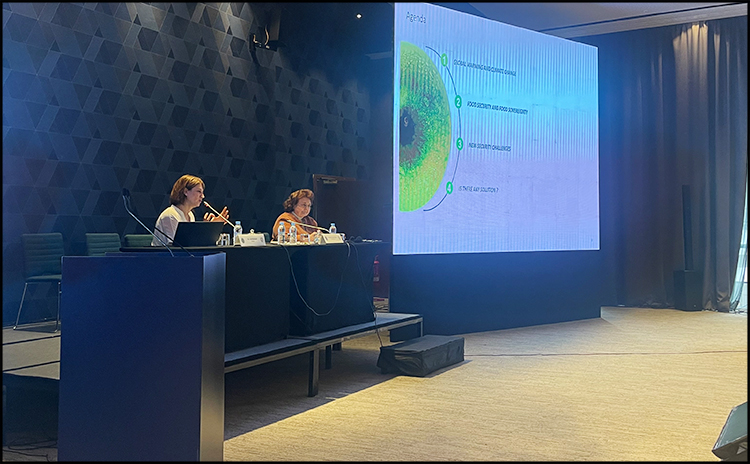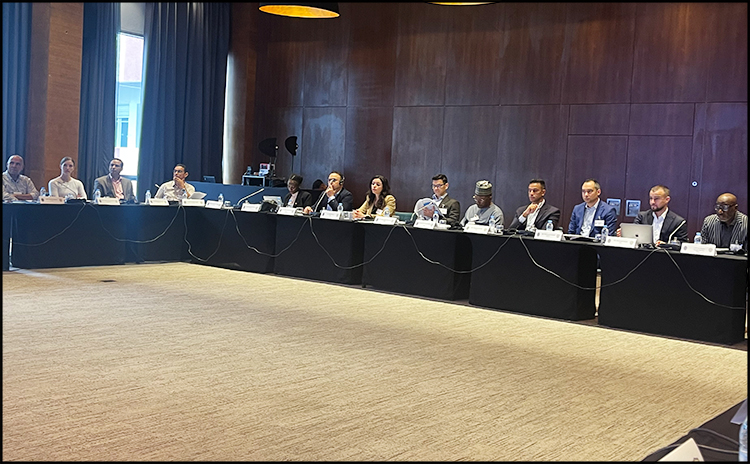2024 NESA-AFRICOM The Impact of the Changing Nature of Security on the Region Workshop
July 11, 2024 2024-07-11 13:142024 NESA-AFRICOM The Impact of the Changing Nature of Security on the Region Workshop
2024 NESA-AFRICOM The Impact of the Changing Nature of Security on the Region Workshop
From 24–28 June 2024, the NESA Center, in partnership with U.S. Africa Command, held a focused workshop with 35 participants in Casablanca, Morocco, on “The Impact of the Changing Nature of Security on the Region.” The senior government and civilian security experts came from seven countries to include a total of 38% women in the workshop. Together, they provided a “whole of society” coupled with a “whole of government” approach as they challenged their preconceptions of “security and threat” and discussed how security in the 2020s has radically changed across the region and the globe.

Under the leadership of Course Director Professor Anne Moisan and Deputy Course Director, Fahad Malaikah the workshop represented a 12-year collaboration bringing various groups together to examine the shifts in “security.” The workshop continued analyzing the evolving nature of security with sessions on Evolving Regional Security Trends; Transnational Threats Require Broader Reach Beyond the Region; Technology, AI, Social Media and Weaponized Disinformation; Climate Change and Food: New Security Challenges; Human Security: The New Focus and Priority; Evolving Warfare Strategies in the 21st Century; Reorganizing to Meet the Changing Nature of Security and Addressing Local Grievances; and the New World Dis-Order: War, Conflicts, and Exporters of Violence. The workshop culminated in a tabletop exercise, “The Changing Nature of Threats and What Keeps You up at Night?” building on the presentations during the workshop. The exercise provided opportunities for the entire group to have a final session to share their candid personal perspectives.

Starting with a broad review of a region inundated now and in the future with changing security challenges and analysis of both internal and external drivers; as well as technological developments, these all will be critical to establishing effective future national, regional, and international strategies. These elements will also determine how these trends and players will impact ongoing and future conflicts and how to best prepare for this future reality. Security discussions on capacity building and the increasing challenges of transnational threats and non-traditional security challenges (climate, food, energy, and water) have challenged traditional concepts of threats in the region, as well as redefined security more broadly and pivoting to the importance of “human security” in a nation’s security calculation. How states can best design and organize institutional capacity and more specifically, security sectors for today’s demands while taking lessons from the business world and leveraging technologies for their success in the future will be critical. Lastly, the impact of grey/hybrid warfare and the convergence of technologies that directly impact how countries organize, how they fight and more importantly, what they can expect from enemy states, as well as non-state actors in the region, will determine and challenge future security operation choices. The effective control of sea, land, air, cyber, and space domains will be critical: AI, drones, robotics, 3D printing, Nano, bio, cheap space, directed energy lasers and microwaves, etc. to name a few areas of concern were also addressed.





